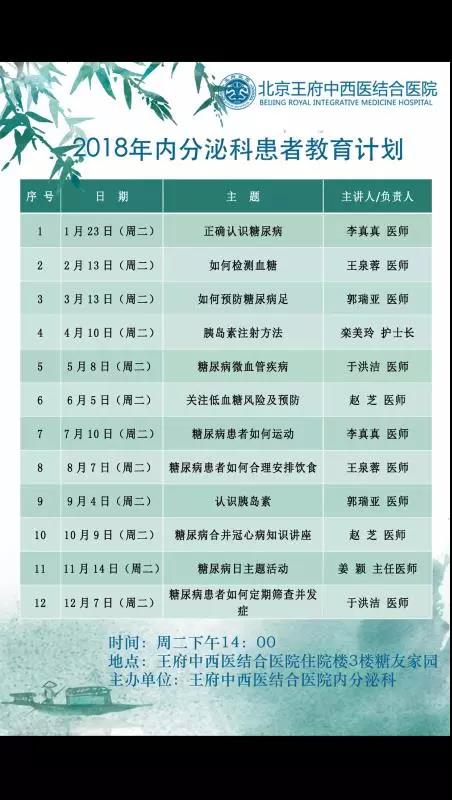The clear and crisp days of autumn means the harvest. All kinds of newly produced rice, fruits and vegetables are fresh and sweet. Food is the first necessity of the people. A variety of tempting fresh foods are enough to make us get high for the whole fall. One thing that keeps the diabetics confused is the high blood sugar. What should they do when they dare not eat? It is greedy. How do you eat to keep your blood sugar from spiking and putting yourself in an awkward position?
At 14:00 on September 4, 2018, the Endocrinology department welcomed No. 9 Patient Education to solve the problem of “eat”. Dr. Wang Quanrong introduced that diet was one of the “five horses” that controlled blood sugar. Reasonable diet could maintain an appropriate weight, provided a balanced and nutritious diet, achieved and maintained ideal blood sugar levels, reduced the risk of cardiovascular disease and reduced insulin resistance and reduced islet βcell load.
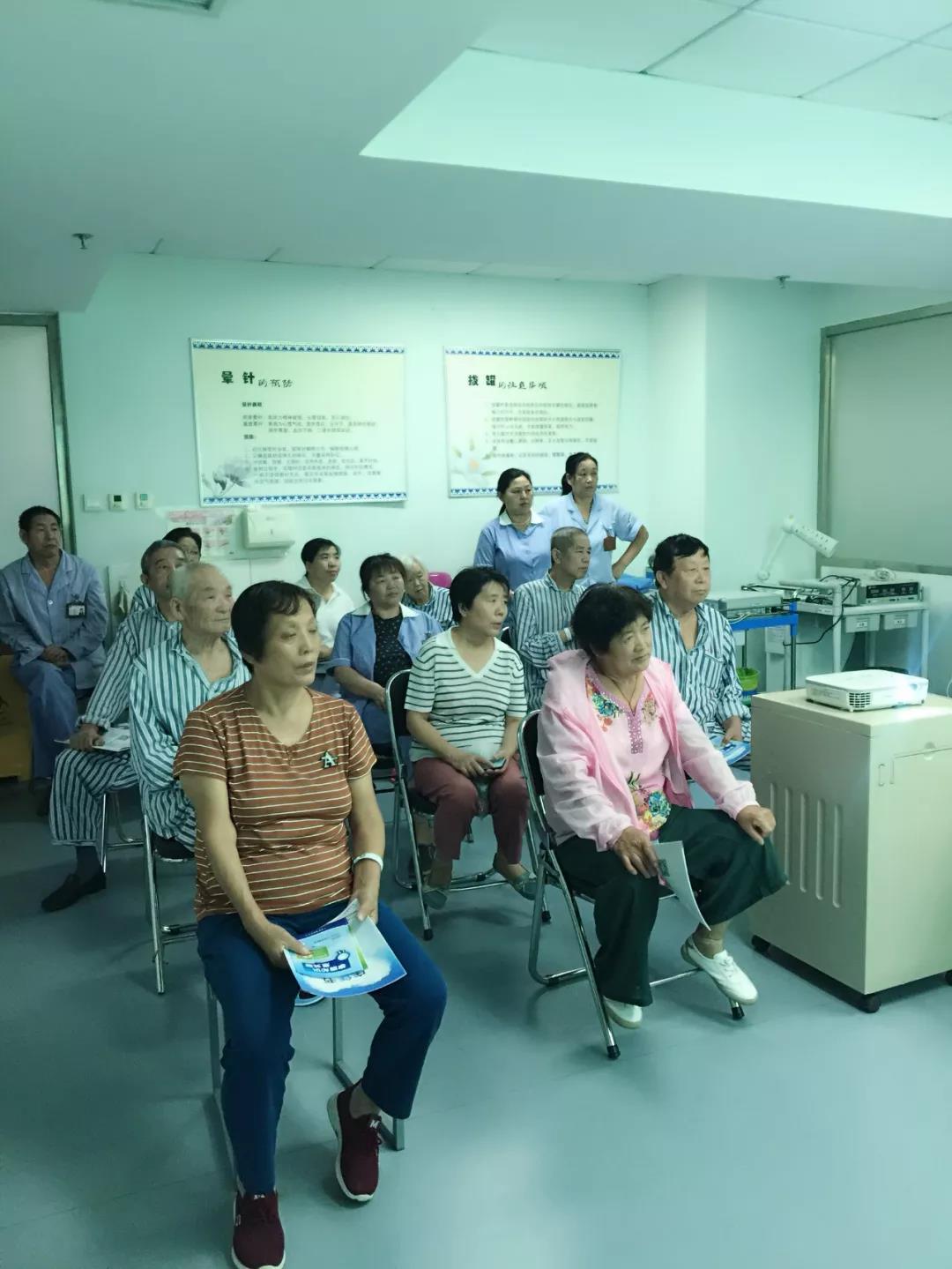
Then Dr. Wang introduced the “Diet Trilogy” to teach you how to determine the total daily calorie intake, calculate the total amount of food required daily, and rationally allocate three meals a day. The energy is mainly derived from carbohydrates, fats and proteins. Follow the rules of the diet pyramid; Dr. Wang gave a detailed introduction on the heat and distribution of different foods such as staple food, vegetables, fruits, milk, eggs, wine and so on. In addition, for diabetics with complications and comorbidities, especially diabetic nephropathy and coronary heart disease, they should pay more attention to protein and salt intake.
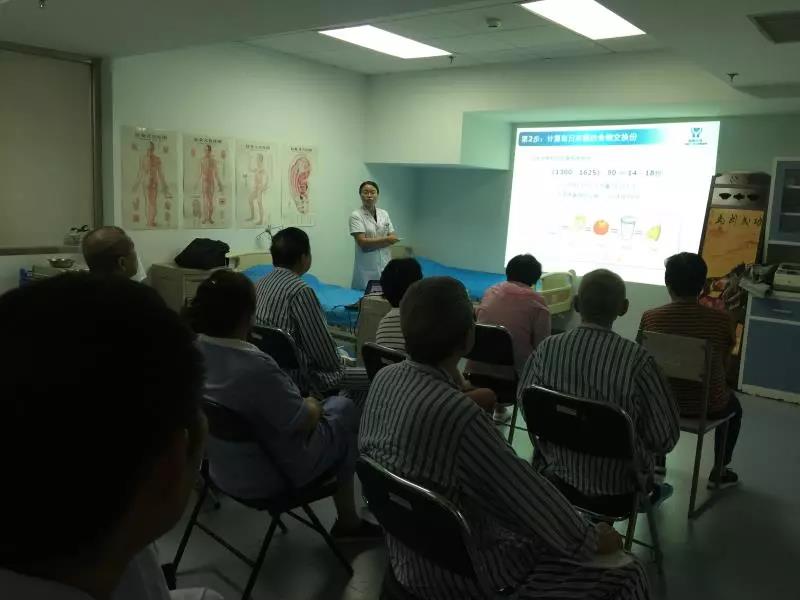
Taking one diabetic on site as an example, Dr. Wang calculated the daily dietary calories according to the height and weight, quantified carbohydrates, fats and proteins, and developed a private recipe based on his diabetes complications and complications. The diabetics listened carefully and actively raised various issues. Dr. Wang gave a detailed and patient explanation. The diabetics also had an interactive exchange, and the responses were quite fruitful. Through Dr. Wang’s lecture, it could be believed that many diabetics would reasonably arrange their own diet. They would not feel wronged, and the blood sugar was also considered at the same time, and they could enjoy the delicious food in autumn safely and comfortably.
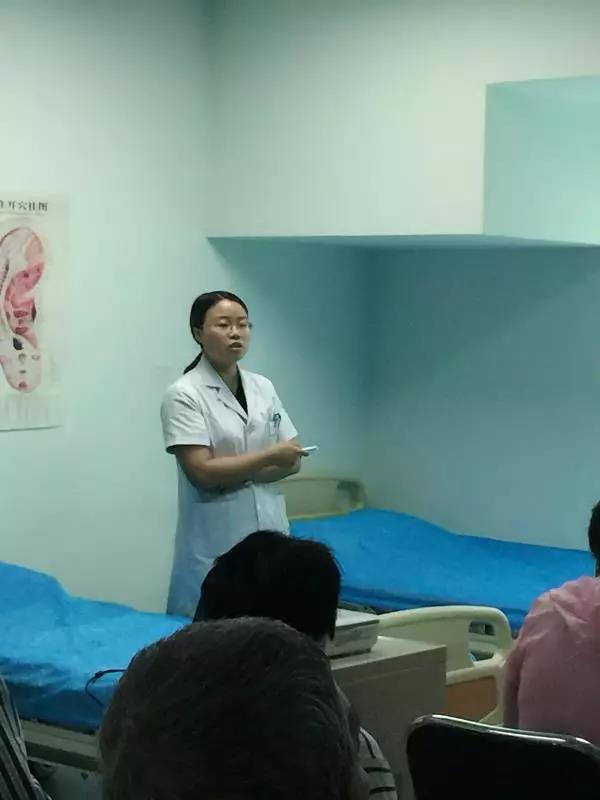
Content of this period:
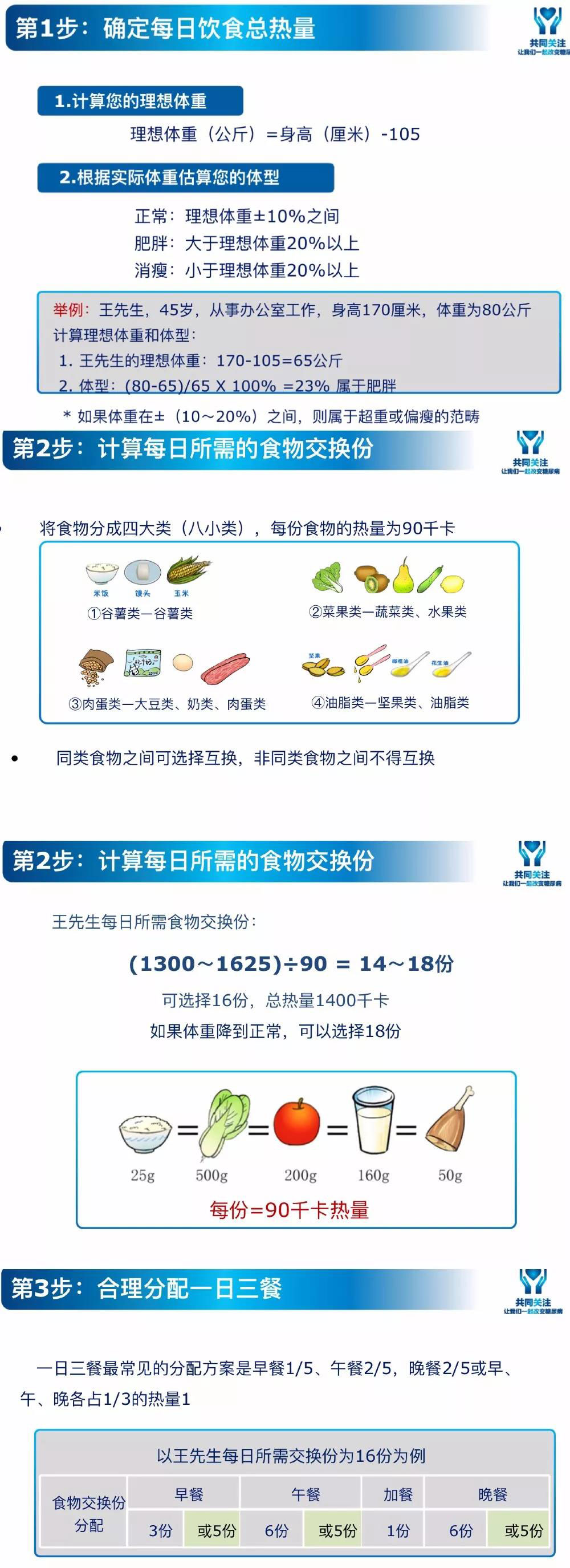
The next lecture is on diabetes with coronary heart disease on October 9, 2018 at the diabetics’ family of Endocrinology department on the 3rd floor of the inpatient department. We are looking forward to your participation!
